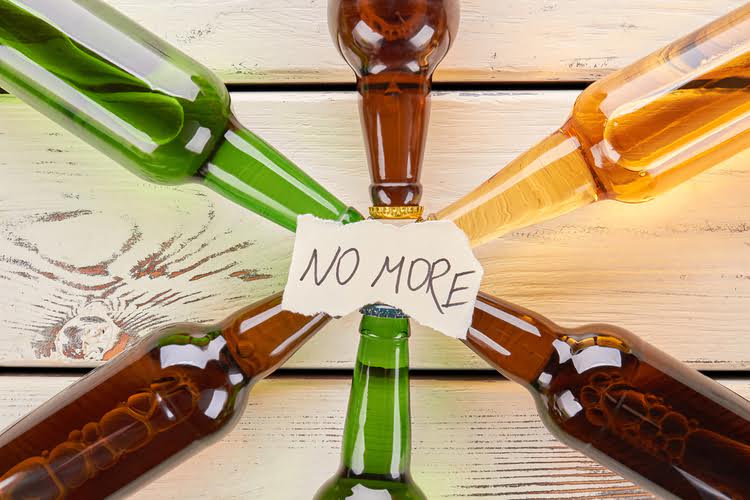Content
A professionally led intervention is key to starting the healing process right. It works by bringing in a professional alcohol and drug interventionist to aid in addressing your loved one about their harmful behaviors. Interventions are dynamic and used to address a host of issues ranging from substance abuse, Alcoholism in family systems untreated disorders, gambling addictions, gaming addictions, internet addiction, sex addiction, or other process addictions. The interventionists Infinite Recovery uses specialize in substance abuse disorders. This has shown to be key in helping to get the right placement for those suffering from addiction.

However, while you want your loved ones to be at ease, your home can be too cozy for them. When the conversation begins, the individual will return to a bedroom or bathroom, and the conversation may be over long before it begins. You’ve also had other, less successful discussions at home, and those conversations may have left you with unpleasant memories or associations. Choosing a sober moment protects everyone’s wellbeing because someone high or drunk is more likely to react with out-of-control words or acts.
The Love First Approach To Intervention
If an addict doesn’t agree to treatment following an intervention, they must face the consequences outlined by their friends and family during the meeting. Authoritative resources and protocols can allow nonspecialist health care providers to provide screening, brief interventions and/or referral to treatment for at-risk patients. A major issue that occurs when individuals attempt to organize an intervention for a person with an alcohol use disorder is that the majority of interventions do not progress beyond the initial planning stages. Obviously, if an intervention is not performed, it cannot be effective. Once the intervention group and the professional interventionist or clinician has been identified, the group begins to plan and rehearse exactly what each individual will say to the person with the alcohol use disorder. Often, individuals are instructed to write down what they will say and keep it brief.
- If the conversation gets heated at any given time, take a moment to regain your thoughts.
- The interventionist facilitates and supervises everything that takes place in an intervention.
- An inpatient rehab provides 24/7 care for your loved one and offers an array of services such as alcohol detox, counseling, activities, support groups and medication-assisted therapy.
- This model is known for its flexibility and its ability to adapt to the situation at hand.
- After successfully completing rehab, your loved one will be referred to various on-going treatment programs in your community.
- If the person has a close relationship with his or her partner, the spouse will speak at the end, when the person is most motivated to improve.
Interventions can be performed without professional help, but this is not advisable. When an individual’s alcohol abuse is affecting others around them, close friends and family members of that person do not have to sit by idly. A proactive approach to pointing out the individual’s behavior and getting them to do something about it can be accomplished. Often, the best way to approach an individual about their problematic alcohol use is to organize an alcohol abuse intervention for the person. Don’t choose family members, friends or loved ones who are overly emotional.
What Is An Intervention Model?
Individuals who have Certified Intervention Professional credentials have been specifically trained and certified to perform interventions. The team should also ask how much intervention experience the person has, and the type of intervention model they use. This will help the team decide whether or not the person’s approach is suitable for their needs.

Sometimes an alcohol intervention brings up many unwanted feelings, which can be an emotional experience for all of the parties involved. For instance, family members may explain how their loved one’s excessive drinking has resulted in damaged relationships or unmet needs. This can be difficult for someone to hear and may produce a sense of sadness, anxiety, or even anger. Although it’s not always easy, the sooner you intervene, the better the chances for a successful recovery.
Get Our Newsletter And Receive News On Addiction, Intervention And Our Company
During a family drug intervention, the family intervention team begins to learn how to change old patterns of behavior, communicate with one another and implement lasting changes. Be it a spouse, a son, a daughter, or any other family member, alcohol is the priority for the person abusing it. All other relationships take a back seat to the relationship with alcohol.
Intervention for Alcoholism – Addiction Center
Intervention for Alcoholism.
Posted: Mon, 27 Sep 2021 07:00:00 GMT [source]
But just because they are accepted practice doesn’t mean they are guaranteed to work for everyone. This process may be led and guided by an interventionist who is hired by the family or group. Verywell Mind’s content is for informational and educational purposes only. Our website is not intended to be a substitute for alcoholic intervention professional medical advice, diagnosis, or treatment. Keeping your cool can be difficult, but don’t allow the addict to start a fight, change the subject, or completely ignore the addiction problem. Avoid blaming, arguing, or launching counter-attacks, and avoid the urge to accuse, claim, or launch counter-attacks.
Community
Family members often have a larger influence over addicted love ones than they perceive. Typically, their point of view may be skewed merely because the addict hasn’t responded to their efforts thus far, but the right tools and language, that an intervention professional can provide, can make all the difference. Sometimes a standalone intervention, the crisis intervention is primarily direct in form. These interventions are highly important for those who find themselves in emergent situations where time is not a luxury.

An intervention is a professionally directed face-to-face meeting between a person struggling with addiction and people who have been affected by that person’s addiction. This may include family, friends, and sometimes employers and/or coworkers. If this is the case, be prepared to follow through with the consequences you outlined during the intervention. By following through with boundary-setting measures, you avoid enabling behavior, which can improve your loved one’s chances for positive change. Community Reinforcement and Family Training is an important, evidence-based method for helping families get help for their loved ones. CRAFT has replaced interventions as the preferred method of getting people struggling with addiction therapy and help. Some clinicians have had the experience of working with people whose families have conducted interventions that have been helpful in persuading their loved one to get help.
Research Treatment Options
In the next part of the letter, you will repeat your love and concern, and then ask the addict to accept help for the illness. You may be quite specific about this, and may even name the treatment center that you want them to enter. This space should be familiar, comfortable and free from distractions. Ideally, interventions should take place at a time when your loved one is sober because the chance for a moment of clarity into the seriousness of addiction is more likely to occur. There’s no guideline for the amount of time that an intervention should take. If a loved one is showing signs of addiction, and family members and friends are affected and worried, now is the time to intervene. For those seeking addiction treatment for themselves or a loved one, the Recovery.org helpline is a private and convenient solution.
Instead of the intervention taking place as one main event, there might be several meetings that occur each week. The process can last until the problem goes away, or the loved one accepts treatment. The Family Systemic Model is a bit different than traditional intervention models and focuses on including the loved one suffering from addiction in every aspect. Having an open and honest conversation may begin the recovery process; however, a more comprehensive approach is usually necessary.
Finding An Intervention Specialist
Addicts in denial are the most typical candidates for an intervention. According to Healthy People, nearly 95 percent of all substance abusers don’t even recognize that they have a problem. Some aren’t in denial at all, but they are fearful of undergoing treatment because they know they’ll have to endure withdrawal. Most addicts have heard horror stories from others, or they have felt withdrawal set in once or twice on their own and the last thing they want is to experience it again. The CRAFT method was developed as a way to help the person struggling with a substance use disorder without forcing a confrontation between families or friends. The CRAFT intervention focuses on self-care, problem-solving, goal setting and other activities designed to improve the lives of people with a substance use disorder while addressing their reluctance to change. Today, confrontation is still highly used among interventionists, but it handled with more care.
Emotionally prepare yourself for these situations, while remaining hopeful for positive change. If your loved one doesn’t accept treatment, be prepared to follow through with the changes you presented. Make sure each team member has the same information about your loved one’s addiction and the intervention so that everyone is on the same page. Hold meetings or conference calls to share updates and agree to present a united team. Be wary of treatment centers promising quick fixes, and avoid programs that use uncommon methods or treatments that seem potentially harmful. Contact national organizations, trusted online support groups or local clinics for treatment programs or advice. An evaluation by an addiction professional helps determine the extent of the problem and identifies appropriate treatment options.

When this simple letter format is repeated by all the people on the team, it has a very powerful effect on the alcoholic. The weight of the facts combined with the loving calm of the group will gently bring the addict into a moment of clarity where he or she can accept help.
Don’t let your loved one know what you’re doing until the day of the intervention. In some cases, the person who is addicted isn’t ready or willing to accept responsibility for their problem.

